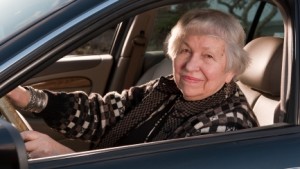How To Convince Loved Ones with Alzheimer’s to Stop Driving
 Until very recently, wellness experts believed that if you’ve been diagnosed with any form of dementia or Alzheimer’s disease, you should not be allowed to drive at all. As people are getting diagnosed earlier these days, and new medications dramatically slow the progression of Alzheimer’s disease by up to five years, you’re less likely to be putting others’, and your wellbeing at risk. In fact, a 2010 American Academy of Neurology study showed that 76% of people with mild dementia can pass a driving test.
Until very recently, wellness experts believed that if you’ve been diagnosed with any form of dementia or Alzheimer’s disease, you should not be allowed to drive at all. As people are getting diagnosed earlier these days, and new medications dramatically slow the progression of Alzheimer’s disease by up to five years, you’re less likely to be putting others’, and your wellbeing at risk. In fact, a 2010 American Academy of Neurology study showed that 76% of people with mild dementia can pass a driving test.
So how does this change in perception affect family wellness? If you have a loved one with Alzheimer’s, it’s not simply a case of snatching away their keys. Instead, you need to carefully monitor their driving habits, and casually introduce the possibility of not driving to see how your loved one reacts. For example, “I know a lot of seniors with memory loss eventually give up driving. What can I do to help if you make that decision?” Your loved one may have even been thinking along the same lines as you, but addressing these concerns with love and respect will help you and your loved one to develop a workable plan of action for the day when driving is no longer possible.
So when is it time to stop driving? There are several signs that your loved one may be having difficulty behind the wheel, such as if she or he gets lost driving to and from familiar places; drives at an inappropriate speed; starts receiving an unusual number of warnings or fines; becomes confused and uncertain at traffic signals; mixes up the pedals; makes frequent, unnecessary lane changes or becomes involved in several minor — or not so minor—accidents. If you notice any of these signs, use your intuition and consult your loved one.
If your loved one agrees that it’s time to give up driving, sell or donate the car as soon as possible, so your loved one won’t be tempted to drive again and help your loved one find appropriate transportation. However, you may need some outside help if your loved one flatly refuses to even consider not driving, even if it’s just from another family member. You can also ask a doctor to write a prescription telling your loved one not to drive, but if the doctor declines or if your loved one ignores the doctor’s prescription, it may be time to report the matter to the licensing authorities, who can order your loved one to take a road test and, if they don’t pass, revoke their license.

Comments are closed.